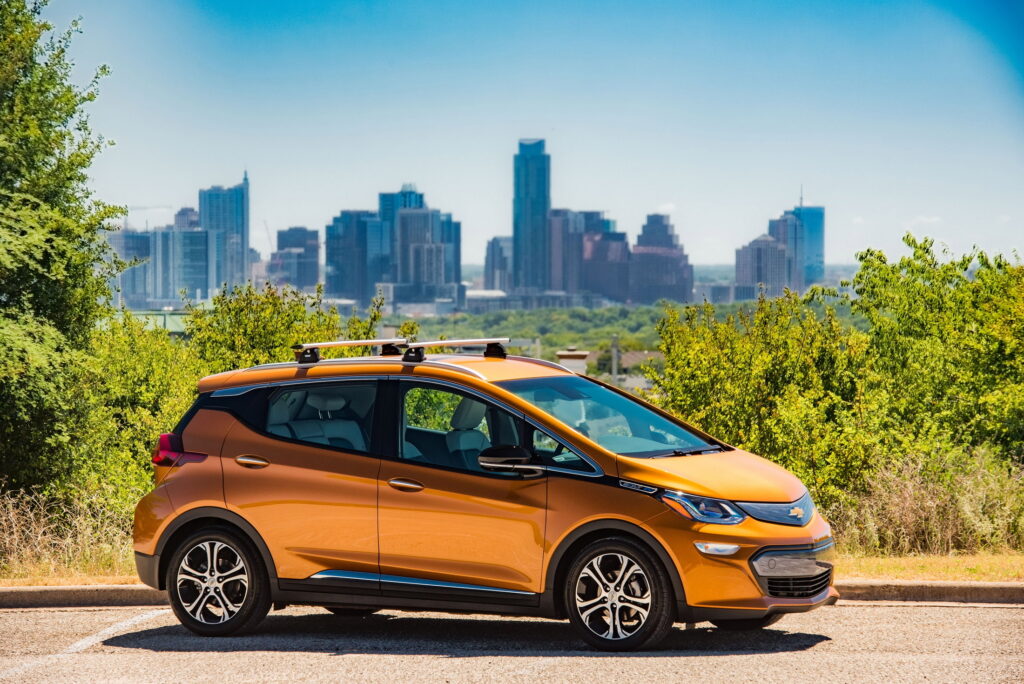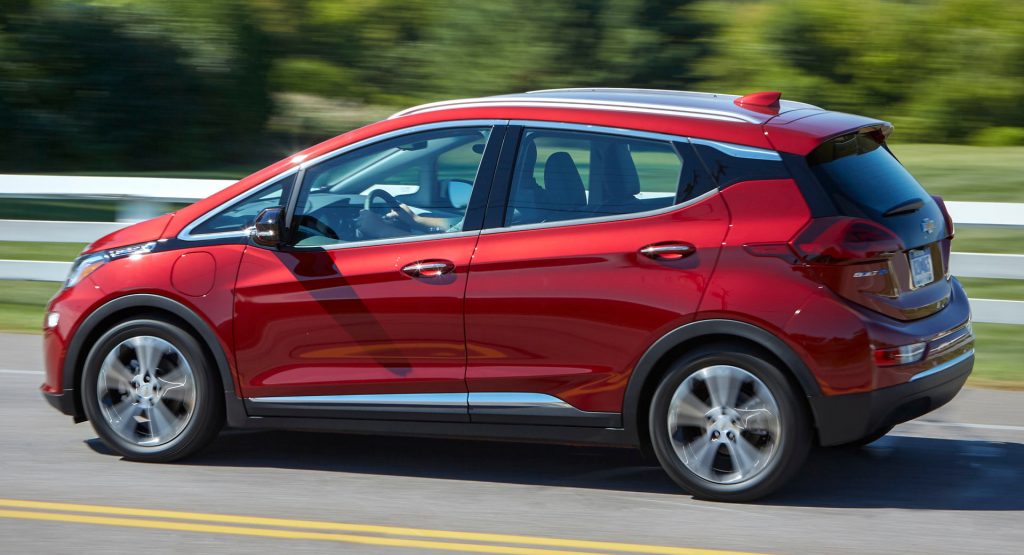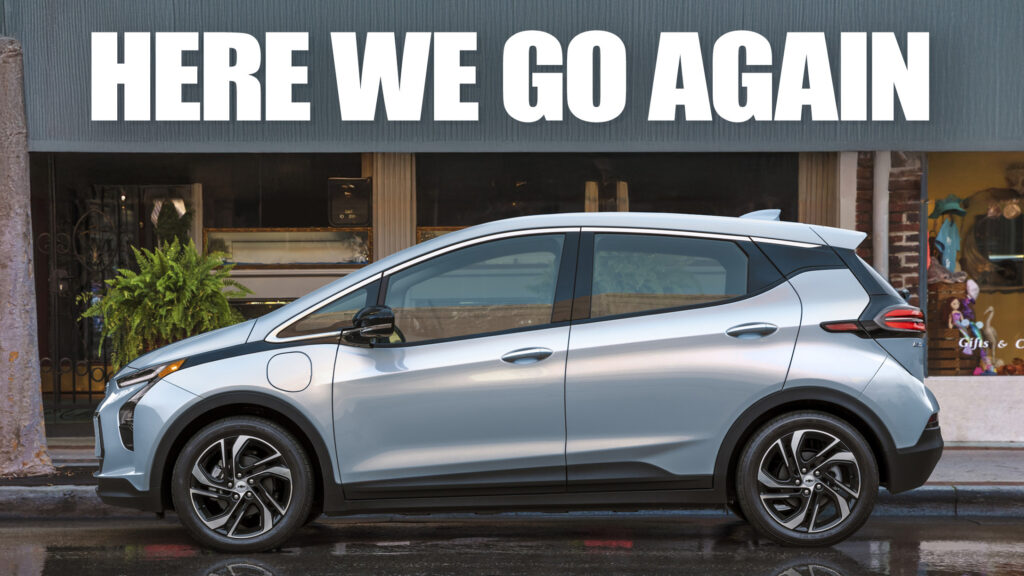- Some Bolt models have diagnostic software that was incorrectly installed and may not function as designed.
- GM advises affected Bolt owners to cap charging at 90% to reduce the possibility of battery fires.
- Owners are also encouraged to not let the range of their EVs dip below 70 miles.
A next-generation Chevrolet Bolt is on the horizon, but GM can’t seem to escape the shadow of its troubled past with the model. The automaker has just issued yet another recall for the older Bolt, a reminder that the headaches of its earlier EV experiment are far from over.
You’ll no doubt remember that three years ago, GM recalled more than 140,000 Bolts across the United States because there was a risk they could catch fire. The issue was traced back to a problem with the battery pack, which was sourced from LG. Now, GM has revealed that some of the 2020-2022 Bolt EV and Bolt EUV models repaired under the previous recall are still at risk of catching fire.
Read: Chevy Bolt Owners Could Be Compensated Up To $1,400 For Battery Fires
As part of a prior recall, GM dealers were instructed to install advanced diagnostic software that alerts drivers to faults within the battery. However, it’s been revealed that in some Bolts, this software was not properly installed, and the vehicle may fail to identify defective battery modules that require replacement. GM says this increases the risk of a vehicle fire.
This is bad news for GM, which has already been severely embarrassed by previous Bolt issues. Fortunately, this latest fault is not widespread and impacts just 107 vehicles in the US. These consist of 2020-2022 Bolt EV models manufactured from November 8, 2019, to May 19, 2021, and 2022 Bolt EUV models built between March 30, 2021, and July 23, 2021.

The carmaker became aware of the issue on July 23, 2024, after a brand quality manager discovered an incorrect software update had limited a customer’s Bolt EUV to 80% state of charge, despite exceeding the prescribed ~6,200 mile (~10,000 km) evaluation period.
GM will notify owners by December 16, 2024, and instruct them to take their EVs to a dealer where the diagnostic software will be installed correctly. In the interim, GM is asking owners to set a 90% charge limitation on their vehicles, encouraging them to charge more frequently and to avoid draining the battery to below 70 miles (113 km) of remaining range. Additionally, owners should park their vehicles outside immediately after charging and should not leave them charging indoors overnight.




